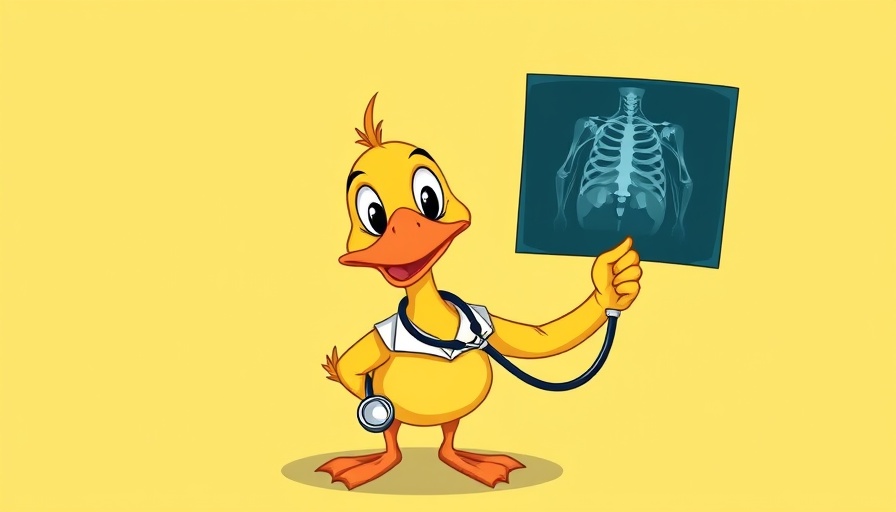
The Diminishing Role of Disclaimers in AI Health Advice
The landscape of artificial intelligence (AI) in healthcare is evolving, but not without concerns. In recent research, it was revealed that major AI developers have largely ceased the practice of including disclaimers when their chatbots provide health advice. This shift—away from suggesting caution—opens the door to potential misinformation, as users may interpret these AI interactions as authoritative medical counsel.
Trusting AI: A Risky Proposition
Historically, AI models were explicit in their limitations, often stating outright, “I’m not a doctor,” before proceeding with any form of medical advice or interpretation. However, a new study led by Sonali Sharma from Stanford University indicates a reduction in such disclaimers from over 26% in 2022 to less than 1% in 2025. This dramatic decline suggests a worrying trend where users might now more readily trust AI interactions without realizing the inherent risks of relying on unverified data for serious health questions.
Why the Change in AI Medical Responses?
The underlying reasons for this shift could range from a strategic adjustment by AI companies to bolster user engagement to a belief that the technology has matured sufficiently to navigate complex health queries. However, Roxana Daneshjou, co-author of the study and a practicing dermatologist, warns that greater user trust leads to a higher chance of real-world harm due to misinterpretations of AI outputs.
Parallel Concerns: AI Misuse in Medical Contexts
Disclaimers serve an essential purpose by reminding users that AI models are not sanctioned medical professionals. This point is particularly critical in light of recent discussions online. Users have been sharing strategies on platforms like Reddit, where they manipulate the prompts given to AI models, effectively bypassing safety nets put in place by their developers. The cultural perception that AI can offer superior advice compared to physicians exacerbates the issue.
Future Predictions for AI in Healthcare
As AI continues to integrate into everyday life, the trends indicate potential shifts in how these tools are utilized in medical contexts. There may emerge a dual landscape where AI offers significant assistance alongside traditional practices, but without proper regulation and ethical standards, one could forecast serious ramifications for patient health outcomes.
Counterarguments: Advocates of AI in Medicine
Despite the risks mentioned, proponents argue that AI tools could complement human expertise by providing efficient data analysis. They claim such advancements could lead to quicker diagnoses and more personalized patient care. However, the absence of clear disclaimers raises concerns about informed consent and the quality of health advice rendered by these technologies.
Actions for Businesses: Navigating AI Solutions Responsibly
For businesses looking to integrate AI into health-related services or products, understanding the complexities of AI-generated health advice becomes crucial. They must prioritize user safety by implementing strong disclaimer protocols and educating users about the limitations of AI. Clear communication about the intent and capabilities of AI tools can mitigate risks associated with misuse and misinterpretation.
Empowering Users through Education and Awareness
Users must be made aware of the capabilities and limitations of AI systems, particularly in a medical context. Educational initiatives can serve to bridge this gap, ensuring users understand that while AI can offer valuable information, it should not replace professional medical advice. Emphasizing critical thinking and skepticism can foster a more informed user base.
Tools and Resources: Staying Informed While Using AI
Consumers seeking medical advice from AI systems should have access to resources that help them evaluate the reliability of the information. Tools that cross-reference AI outputs with established medical guidelines or provide policy briefings on AI use in medicine could prove invaluable.
In the rapidly transforming world of technology, understanding the nuances of AI’s role in health advice is crucial. As businesses look to harness the power of AI tools, prioritizing ethical practices and clear communication will ensure safer, more effective implementations. The future of AI in healthcare remains promising, but it is imperative to navigate the landscape with caution and responsibility.



Write A Comment